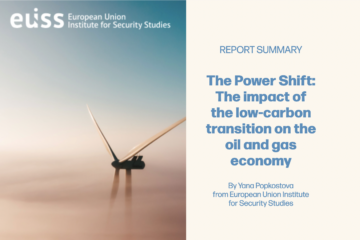Report summary: China and the Battle of Coalitions: The ‘circle of friends’ versus the Indo-Pacific strategy
China and the Battle of Coalitions: The ‘circle of friends’ versus the Indo-Pacific strategy. By Alice Ekman, from European Union Institute for Security Studies, April 2022, 58 Pages, https://www.iss.europa.eu/sites/default/files/EUISSFiles/CP_174_0.pdf
Since the advent of Xi Jinping as the President of the People’s Republic of China in March 2013, China has focused on enlarging its ‘circle of friends’, and on finally putting an end to the partial diplomatic isolation the country inherited from the Mao and Deng eras. Opposed to the concept of ‘alliances’, Chinese diplomacy has instead been particularly active in developing a network of partnerships, more recently taking advantage of the Trump administration’s withdrawal from several multilateral organizations. Beijing has often counted on a group of more than 50 countries to support its position at the United Nations (UN) on various sensitive issues – including Hong Kong and Muslim treatment in Xinjiang.
The paper identifies the tactics and strategy used by China to expand its circle of friends, through avenues such as trade, shared security concerns, and mutual values. China’s plan for global partnerships underpins its ambitions for restructuring global governance, with China as the central norm-setter, backed by its coalition of supporting states. The paper characterizes China’s coalition building efforts as informal, fast-paced, and multilayered, and describes its network-building tactics for trade and UN voting.
Additionally, the paper assesses the prospects for Beijing’s coalition-building endeavors, based on an analysis of its past achievements as well as the setbacks it has encountered. It examines the support China has garnered from many countries within the UN, as well as how the Covid-19 pandemic has impacted China’s coalition-building efforts. The paper analyzes the discrepancies between West’s Indo-Pacific strategy vs. China’s Asia-Pacific strategy, and how China’s connectivity initiatives are ready to expand beyond its partners, aiming at US-allies.
Finally, The paper explores the potential impact of Russia’s ongoing war against Ukraine – and related sanctions – on coalition-building dynamics in the years ahead. It highlights the growing disconnect between global coalitions, and how this polarity will shape UN procedures into 2027.
This summary is written by Anna Thomsen, Intern at the Danish Foreign Policy Society on a Metcalf Research Grant from the University of Chicago and undergraduate student at the University of Chicago studying Political Science and Eastern European Studies, with a focus on the Balkans as well as the Russia-Ukraine war.


